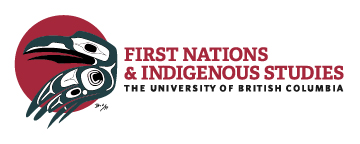How has the way we talked about Indigenous topics in the classroom changed since the original What I Learned In Class Today: Aboriginal Issues in the Classroom project debuted?
What I Learned in Class Today: Educational Experiences and Institutional Responses to Indigenous Engagement in Curriculum, Pedagogy, and Classroom Climate at the University of British Columbia is a continuation of the important work done by Karrmen Crey, Amy Perreault, and their classmates who created What I Learned in Class Today: Aboriginal Issues in the Classroom as a space to share the problematic experiences of Indigenous students on campus.
In 2007, the project conducted interviews with Indigenous and non-Indigenous students in the First Nations Studies Program (now called First Nations Indigenous Studies and FNIS) and then with faculty throughout the following year. This process established a collection of public records intended to shine light upon the underlying dynamics of the incidents, spark dialogue within units to address classroom climate, and to hold the institution accountable to Indigenous student experiences. The 20 minute video was screened within classrooms and department meetings across UBC and directly informed the 2009 Aboriginal Strategic Plan (ASP). As a result of the ASP, a role was created at the Centre for Teaching, Learning and Technology (CTLT) to support instructors in integrating Indigenous content in their classes.
In 2018, Amy Perreault, who holds the above position at CTLT Indigenous Initiatives, rekindled the project with fellow educational consultant Erin Yun, and undergraduate academic assistant Adina Williams. The renewed project sought to ask similar questions around Indigenous experiences on campus in the context of local and national initiatives such as the 2009 ASP, Idle No More, the 2013 Truth and Reconciliation Commission (TRC) proceedings in Vancouver, the 2018 opening of the Residential School History and Dialogue Centre (RSHDC), and Canada’s signing of the United Nations Declaration of the Rights of Indigenous Peoples (UNDRIP). While there has been much positive momentum around Indigenous engagement and support in Canadian post-secondary environments since these events, the initial discussions in our renewed project with Indigenous students, staff, faculty, and community members at UBC-Vancouver echo those of the original project.
Beginning in the Fall of 2018, the project team hosted conversations with alumnus, staff and administrators, faculty, grad students and TA’s from UBC Vancouver campus on their experiences of campus and classroom climate on Indigenous engagement in teaching and learning. Through environmental scans, focus groups and interviews, alumnus, staff and administrators, faculty, and students from UBC Vancouver campus provided their guidance and experiences on Indigenous topics in curriculum, classrooms, and the workplace. This culminated in our two-part film, presented in a format relating back to the original 20 minute video produced in the original project.
To watch the two-part film showcasing clips from our faculty interviews, visit the Faculty Perspectives page. Key themes from this film are expanded upon in a six-part article series that can be found under the Key Themes & Discussion Prompts page. The Student Perspectives page will continue to be updated throughout the 2021-22 academic year with the release of video and written materials including an article series exploring key themes from student interviews. On the Research Process page you will find a breakdown of the ethics that guide our research as well as a timeline of the project with additional resources including an Environmental Scan and Focus Group Summary Report.

